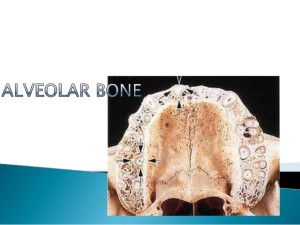Our teeth are not just exposed to dental problems, but to stress, too. This can wear away your teeth which causes your oral health to deteriorate. Because of the adverse effects brought by stress, individuals are reminded to be cautious at all times, especially when stress is associated with eating and chewing.
Luckily, there are tissues and bones that keep our teeth in place. Thanks to our alveolar bone.
Not all of us are familiar with alveolar bone. This is because alveolar bone is commonly called as tooth socket. This gives the needed support to your teeth especially when your teeth receive pressures of chewing. As outlined by research, alveolar bone is a deep anchor. It can provide strength or support all the way to the long root of your teeth that extends down the gums and your jawbone.
The alveolar bone has different areas. The part that encloses your teeth’s roots is called the alveolus. People usually call this as the actual socket. Contrary, there’s also a strong tissue that affixes your teeth to the alveolar foundation all through the base of the root. This is called the cementum. Alveolar bone is found in the lower and upper jaw. All these bind and secure the teeth with a special ligament for maximum support.
Sad to say, there are unhealthy habits that cause alveolar bone loss. This can dissolve your alveolar bone which causes tooth loss. The most common cause that triggers this condition is periodontal disease or also known as gum disease. Other factors causing alveolar bone loss are excessive smoking, ill-fitting of dentures and osteoporosis. Dental professionals also verified that bad oral hygiene habits, like skipping brushing, can cause alveolar bone loss. No wonder why dental plaques and gum disease and alveolar bone loss are connected to one another.
Good oral hygiene and dental care truly play a vital role to the dental health. Besides preventing dental problems from transpiring, this can fight any oral symptoms which can cause general health issues, like stroke and heart disease.
If you want a secured tooth, secure first your alveolar bone. To learn more, visit a dentist or check our company website.